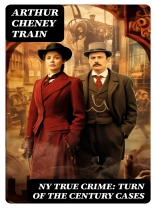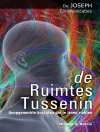In ‘NY True Crime: Turn of the Century Cases, ‘ Arthur Cheney Train masterfully compiles a series of gripping true crime narratives that delve into the dark underbelly of New York City during the late 19th and early 20th centuries. With a keen eye for detail and a narrative style rich in period-specific language, Train immerses readers in the historical context of each case, highlighting the social tensions, legal intricacies, and evolving perspectives on crime and justice. His meticulous research not only reconstructs famous cases but also provides insight into the zeitgeist of an era marked by industrialization and urban expansion. Arthur Cheney Train, a lawyer and influential figure in early 20th-century American literature, drew upon his extensive experiences within the legal system to frame these narratives. His deep understanding of the law and its intersection with society is evident as he contextualizes each case within the greater historical landscape. Train’s passion for storytelling and fascination with the macabre allowed him to infuse these true accounts with a sense of narrative urgency and moral exploration, making him a noteworthy chronicler of his time. This book is highly recommended for true crime enthusiasts, history buffs, and anyone intrigued by the complexities of human behavior. Train’s vivid storytelling, coupled with the rich tapestry of historical detail, offers an unforgettable glimpse into the lives of those caught in the web of crime, making it a compelling addition to both literary and criminal justice studies.
A propos de l’auteur
Arthur Cheney Train, born on September 6, 1875, in Boston, Massachusetts, was an esteemed American lawyer and writer, renowned primarily for his legal thrillers and mystery novels. A Harvard graduate, Train served as an assistant district attorney in New York County, where he gained intimate knowledge of the intricacies of the judicial system. This firsthand experience would later serve as a fertile ground for his literary works, fostering a richly detailed and authentic narrative style. Train is perhaps best known for his series of stories featuring the character Mr. Ephraim Tutt, a shrewd and elderly lawyer whose exploits captivated readers and showcased Train’s wit and legal acumen. His work ‘NY True Crime: Turn of the Century Cases’ provides insightful glimpses into the real-life cases that shaped New York’s legal landscape during a transformative era. Train’s ability to weave fact with fiction in a seamless and engaging manner not only entertained but also informed the public about the complexities and nuances of law and order. He explored themes of justice, societal implications of legal decisions, and the morality of law, making significant contributions to both the literary and legal worlds up until his death on December 22, 1945.












